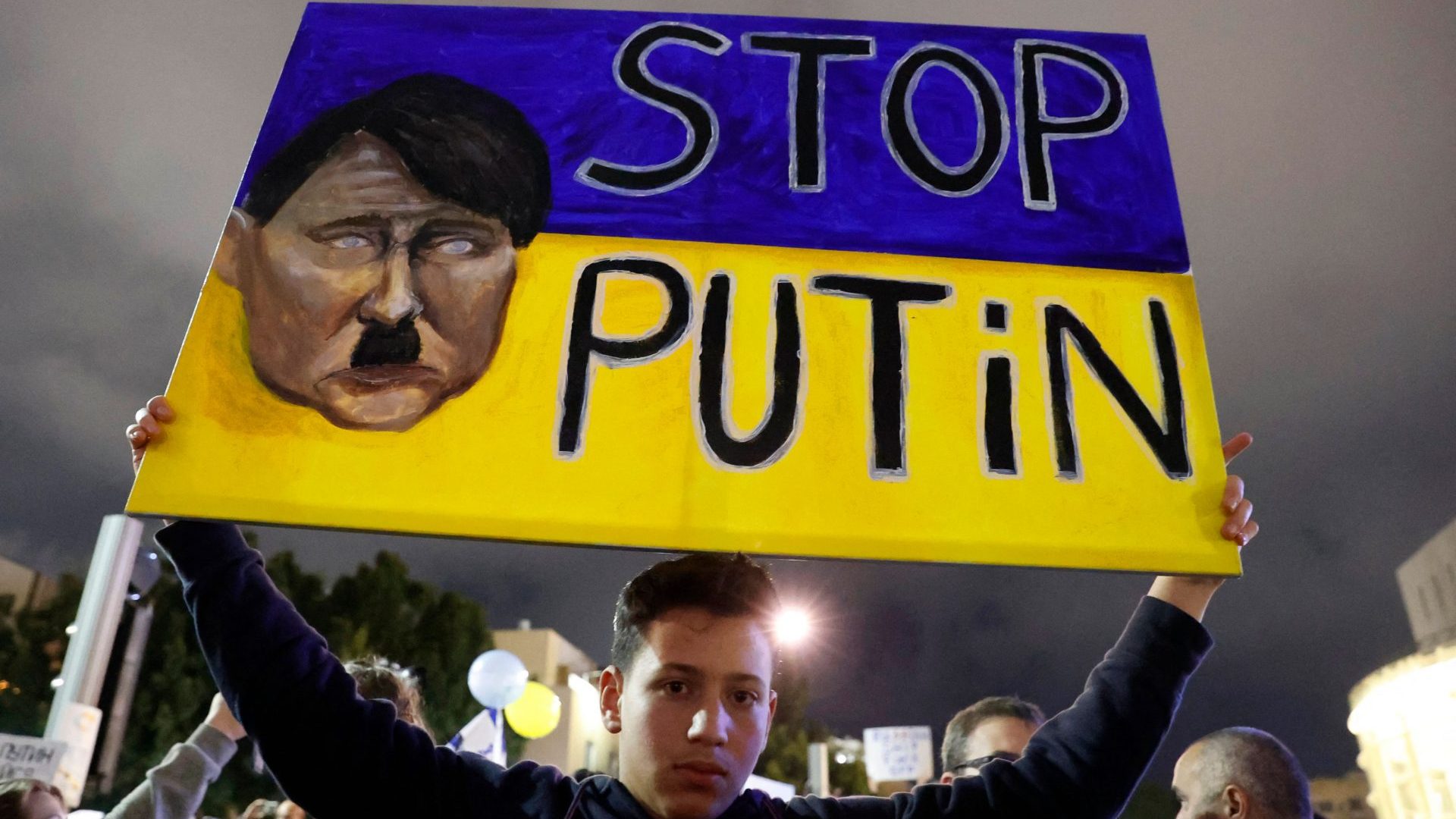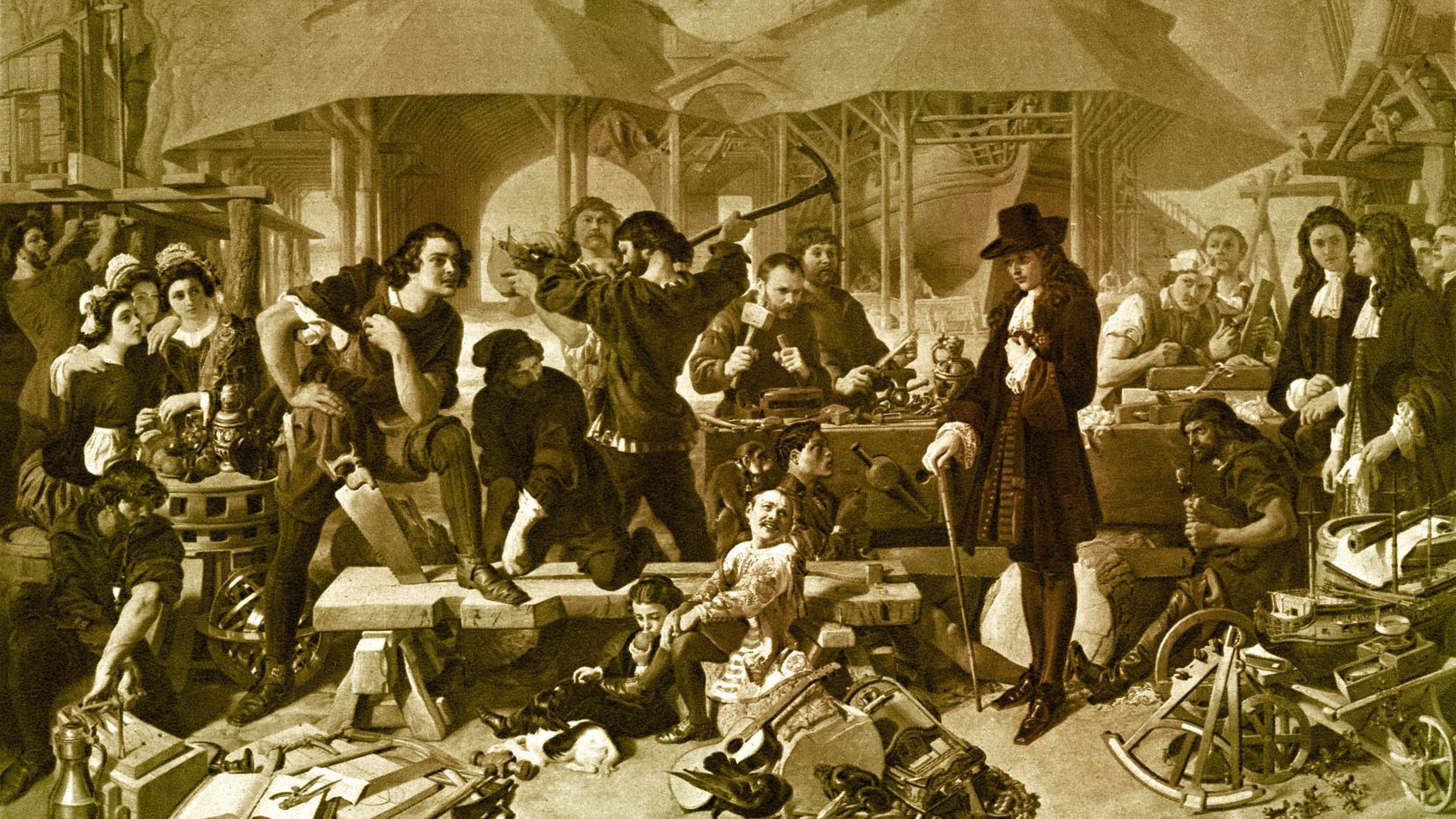The BBC’s Neil Henderson saw his plane cancelled after covering the Munich Security Conference, and took trains across Europe to get home to London. One of his travel tweets, depicting the Bavarian countryside, read: “Germany is pretty, it is exclusively revealed.”
It is. Come and see for yourself, if you haven’t.
Germany isn’t just pretty, however. Geostrategically – and the latest example is Ukraine – Germany is also pretty selfish, pretty complacent and pretty hopeless.
So should you hear “Germany stands firmly by your side”, you had better be extra cautious, because in military terms this side may turn out to be an open flank.
Ever since we were kindly informed that warring wasn’t our strong suit, German foreign and security policy has largely focused on peaceful commercial interests. And on buying our way out of taking (more) responsibility with financial aid.
Part of the country seemed to think we were a department store called Bundesrepublik Deutschland that could ignore what was happening outside. The other part of the country believed that because we had caused atrocities all over Europe, we should never be trusted again to keep anyone else from causing atrocities.
This strict doctrine has changed. Since the cold war ended, Germany has engaged in military operations abroad, usually with supporting, training or peacekeeping roles. Many believe that our soldiers were mostly digging wells to help local villagers.
The historic unease in regard to the military has never fully gone away. Soldiers in uniform here aren’t greeted with the respect and gratitude their comrades encounter in the UK, the US and France.
There is little to no political gain in demanding more defence spending. On the contrary: polls show that a higher military budget is hugely unpopular, and anyone calling for it is accused of warmongering.
Our armed forces have more than halved since 1990. They have been neglected, understaffed and underequipped, to an extent that has only just now been spelled out by the chief of the German army, in a rare public rant.
Lieutenant-general Alfons Mais wrote on LinkedIn: “The army which I have the privilege to command is more or less empty-handed. The options we can offer the government in support of the alliance are extremely limited.”
He was backed by former Nato general Egon Ramms. If it came down to it, would the Bundeswehr be able to defend Germany, Ramms was asked on live television. His one-word answer: “Nein.”
None of this is news. There have been reports for years about tanks not rolling, ships not sailing and jets not flying.
You could never be quite sure that the chancellor, Angela Merkel, or her cabinet would make it to a meeting abroad because of our air force planes, which work well in good weather. Remember Merkel flying commercial to a G20 summit in Buenos Aires? She was praised for being so down to earth.
Sadly, her government plane was down to earth, too, with a technical malfunction.
Consecutive government coalitions share the blame for the Bundeswehr’s bad shape and for not fulfilling Nato’s targets for military spending. Members of the Social Democratic party and the Greens campaigned against armed drones. The Christian Democrats – who ran the Ministry of Defence from 2005 until this year – never turned the cumbersome bureaucracy into what is needed to supply and run a modern-day army. Today, we are even short of 350 pairs of long johns for the soldiers reinforcing Nato troops in chilly Lithuania.
The only ground our country has gained in recent years is the moral high ground. A sense of superiority, paired with idealism and naivety, led too many people to believe that we could negotiate our way through every conflict with any despot. That we could depend on Russian gas and coal without others having to pay the price. That gender-friendly-language was more relevant than army equipment.
No need to mention that the, ahem, wise strategic leadership offered by the Anglosphere in the last couple of years has only supported the belief that everyone else but German pacifists got it wrong.
As if we didn’t bear responsibility for the fate of those European countries that were handed to the Soviet bloc after a world war we had caused. Mad Vlad may just have put an end to all this.
After his invasion of Ukraine, Germany was still hesitant to help. Just 5,000 helmets was the “strong signal” of support announced by our defence minister. I cannot remember ever feeling so ashamed of my country.
While brave Ukrainians and equally brave Russian protesters stood up against Putin’s aggression, German politicians across all parties explained why kicking Russia out of Swift was too much to ask (because it would damage our future) and why we couldn’t send weapons (because of our past).
For days, blue and yellow lighting was the best we could manage in the way of support for Ukraine, until, finally, chancellor Olaf Scholz was ready to give to the Bundeswehr what finance minister Olaf Scholz had not been willing to give during the last government.
Now there will be substantial arms deliveries to Ukraine, a Є100bn (£84bn) investment in the armed forces, a commitment to the 2% Nato goal, a pledge to build up strategic energy reserves and a commitment to eject some Russian banks from Swift.
Finally, a paradigm shift that is long overdue. Nothing to be proud of. But a reason not to be ashamed any more. And yes, seeing more than 100,000 people in support of Ukraine at the Brandenburg Gate did feel good.
Now, let’s get those supplies into Ukraine.




